At the last count, 18 out of 36 states in Nigeria do not have elected local government chairmen and councilors. Instead, they have caretakers appointed by state governors. Section 7 of the 1999 Constitution provides that local governments should be run by elected officials. This law was reaffirmed in 2006 and 2014, when the Supreme Court clarified that governors did not have the powers to sack elected local government officials.
More recently in 2019, the Supreme Court also ruled that local government areas without elected officials should not receive federal government allocations. Former President Muhammad Buhari had also in the same year initiated the process towards disbursing federal allocations to local governments straight from the Nigerian Financial Intelligence Unit (NFIU). Guidelines were produced to this effect, but they were sabotaged by state governors.
Join our WhatsApp ChannelA Closer Look (See Figure 1)
At least, 323 of Nigeria’s 774 local governments neither have elected LGA chairmen nor elected councilors.
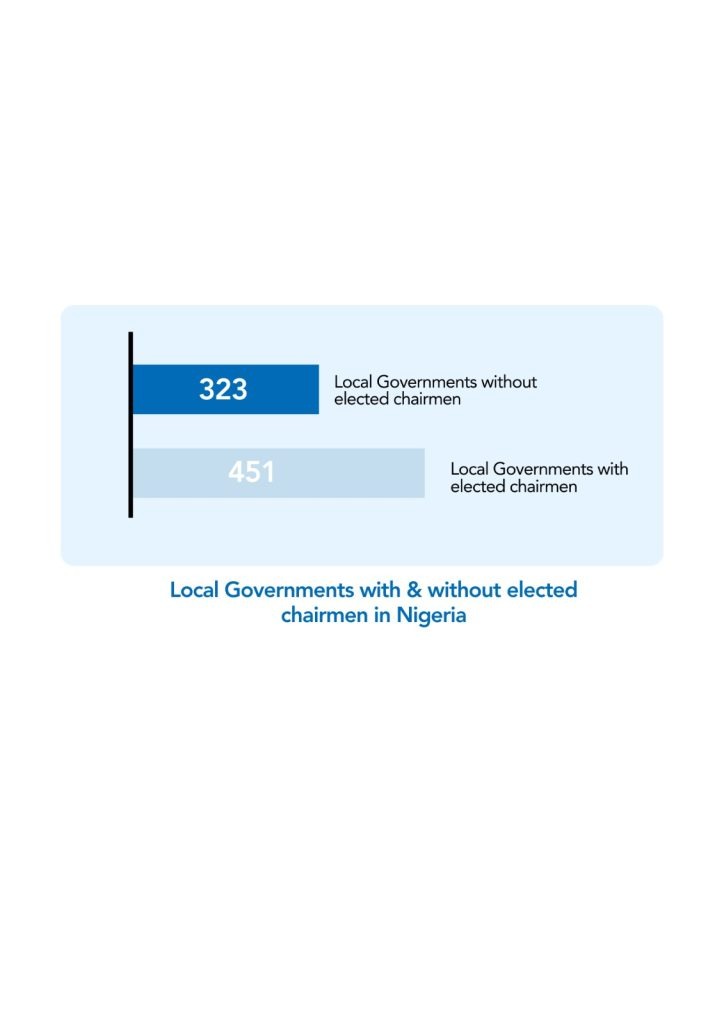
In the northeast of Nigeria, only 21 LGAs (in Adamawa) have elected officials out of the 112 LGAs in the Zone. The rest of the five states of Bauchi, Borno, Gombe, Taraba and Yobe are moving on without elected officials.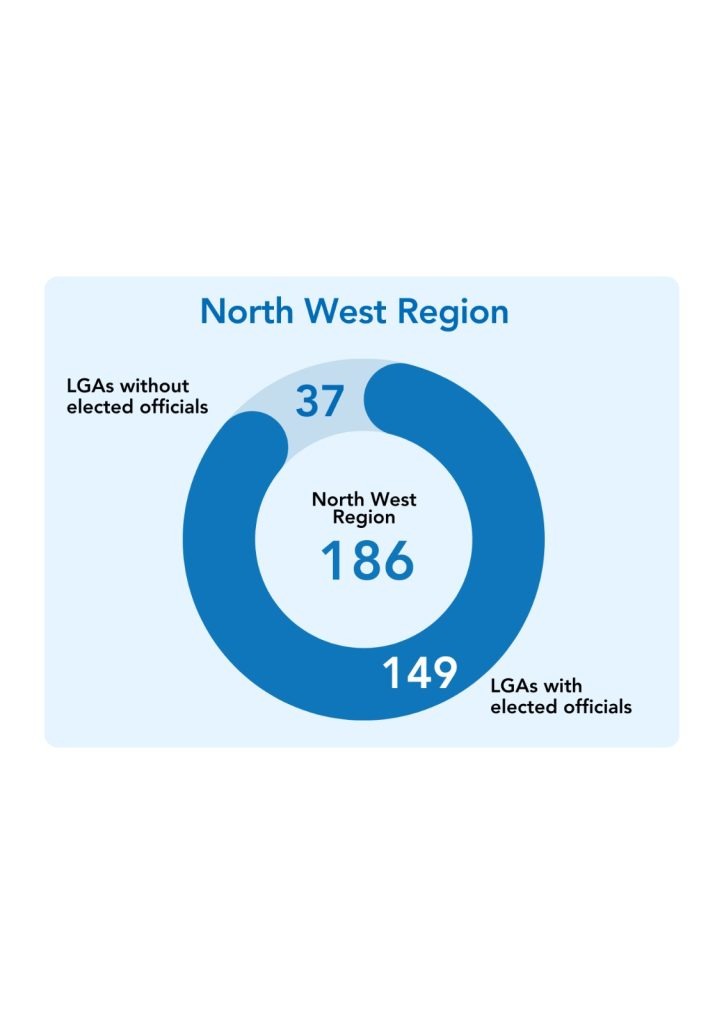
In the north central region, 56 of the 121 LGAs there do not have elected officials, while 65 have. Luckily, most of the states of the northwest geopolitical zone seem to obey the Constitution on local elections. This is because 105 out of 186 LGAs in the zone have been running for a long time with elected officials. It is only Kano,Sokoto, and Zamfara’s combined total of 81 LGAs that do not have elected officials as of this writing.
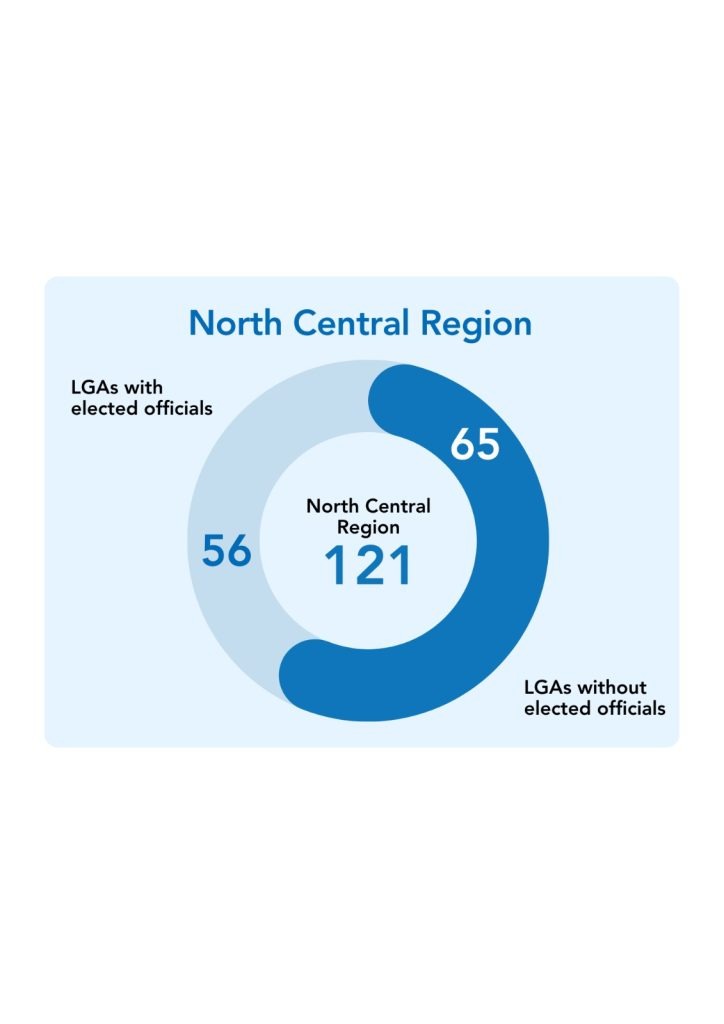
Enugu and Ebonyi States in the southeast have also done well over the years to sustain local government elections in their combined 30 LGAs. However, the cumulative 65 LGAs in Abia, Anambra and Imo have been topsy-turvy for a combined three decades.
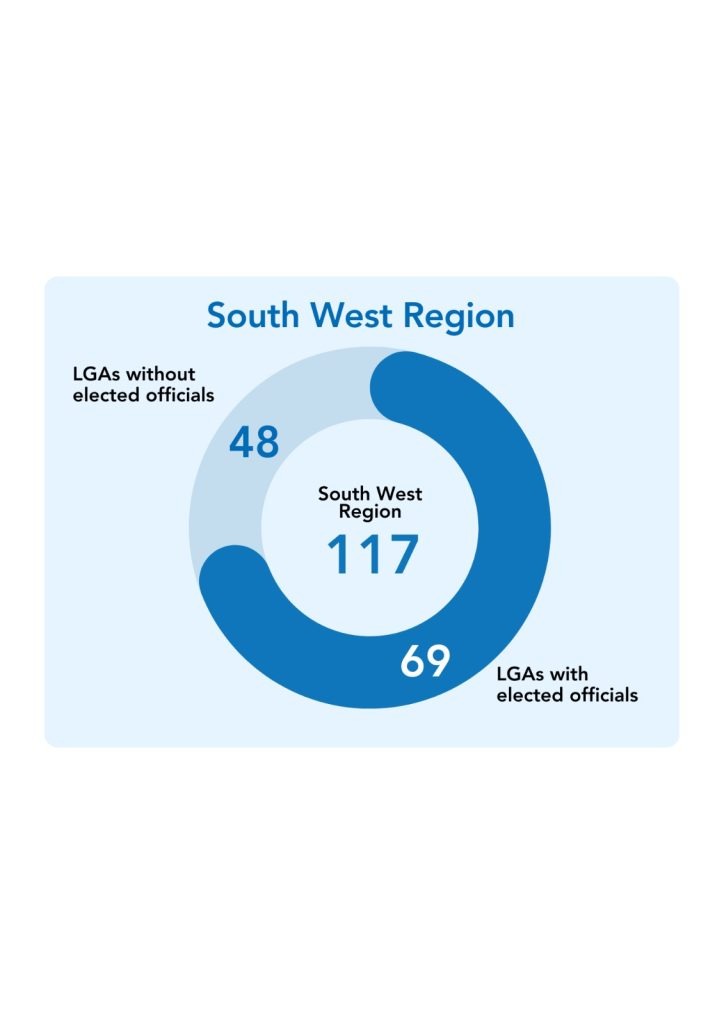
Sixty-nine of the 117 LGAs in the southwest zone have elected officials. The rest of the caretaker-run 48 LGAs are in Ondo and Osun. The south-south is somewhat better, because it is only a combined 26 LGAs in Bayelsa and Cross River that have yet to conduct LGA polls. Seventy-nine in Akwa Ibom, Delta, and Rivers remain without elected officials, while the 18 LGAs of Edo State got a reprieve in October 2023 when elections were held after the last one in 2018.
READ ALSO: Old-New National Anthem – A New Victory Cry (Audio)
Figure 1: Some of the worst performing states
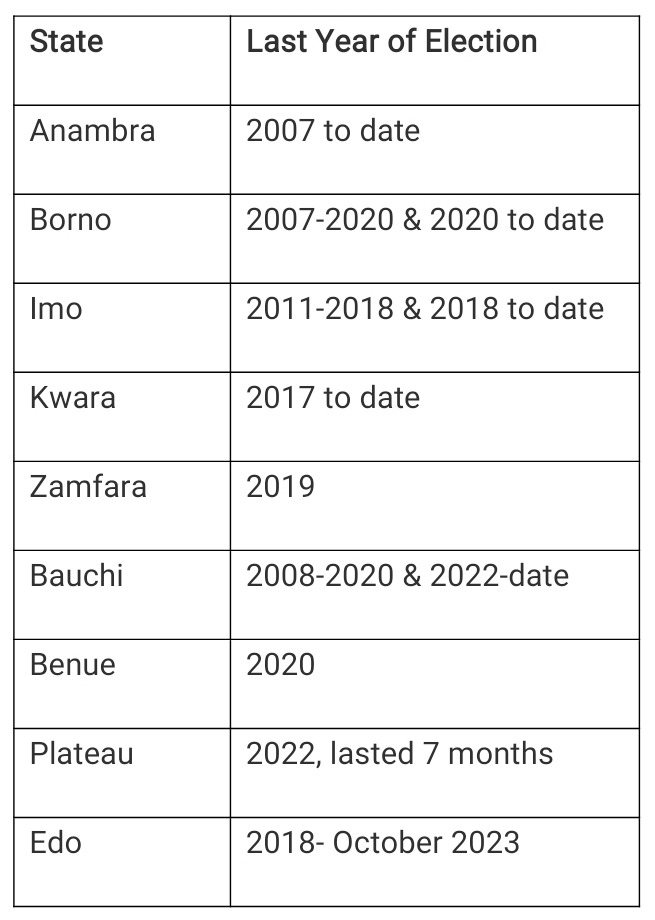
The Governors’ Lame Excuses
The governors often cite lack of funds to conduct fresh elections or insecurity, especially in the northeast region. Unfortunately, in some states such as Imo, Benue, Bauchi and Plateau, state governors are in the habit of sacking elected LGA officials once the governors take power. The governors end up working with caretaker committees until they near the end of their tenures, when they usually conduct elections that will be sooner or later overturned by a new governor.
An anonymous source from the Nigerian Governors Forum said the body was handicapped in addressing the situation as its role to governors was advisory, and that it does not dabble into local politics. The source urged any aggrieved party to approach the courts. Yet, the courts have since ruled against the illegality perpetrated by the governors to no avail.
Anarchy at the Grassroots: How Governors Sabotage Nigeria’s Democracy – Experts Disagree
Legal and political experts have held that the desire of state governors to control the local governments is the primary reason for the lack of democracy at the grassroots. This much was explained by Olisa Agbakoba (SAN), who had taken the governors to court in 2019, where his plea against anarchy at the grassroots was upheld by the apex court. Agbakoba had accused the governors of acting against the Constitution and unduly controlling State Independent Electoral Commissions, SIECs. He said: “What the governors did was a coup against the local governments. Ninety per cent of our problem is with the state structure. We must question what the governors do.”
In similar tones, National President of the National Union of Local Government Employees, NULGE, Mr. Ambali Kazeem, called out the governors for being autocratic against the Constitution. This was also the view of Professor Sylvester Odion-Akhaine a political science lecturer at the Lagos State University and former gubernatorial aspirant in Edo. The varsity don decried the emasculation of democracy at the local level, linking the situation with the failure of democracy and development in the country.
Many commentators have uniformly insisted that even in states where elections are conducted in the LGAs, governors still run them like fiefdoms. Virtually every dime from the federal allocation to the LGAs are offered on a platter to the governors, who embezzle everything with impunity. Need we look any further for the most critical source of grassroots underdevelopment in Nigeria, from where the larger national rot takes root? Apparently, state governors in Nigeria are plain emperors, who sacrifice anything to keep power, and to muzzle the grassroots by all means.
Dr Mbamalu, a Jefferson Fellow and Member of the Nigerian Guild of Editors (NGE), is a Publisher and Communications/Media Consultant. His extensive research works on Renewable Energy and Health Communication are published in several international journals, including SAGE.
SMS/Whatsapp: 08094000017
Follow on X: @marcelmbamalu
Dr. Marcel Mbamalu is a communication scholar, journalist and entrepreneur. He holds a Ph.D in Mass Communication from the University of Nigeria, Nsukka and is the Chief Executive Officer Newstide Publications, the publishers of Prime Business Africa.
A seasoned journalist, he horned his journalism skills at The Guardian Newspaper, rising to the position of News Editor at the flagship of the Nigerian press. He has garnered multidisciplinary experience in marketing communication, public relations and media research, helping clients to deliver bespoke campaigns within Nigeria and across Africa.
He has built an expansive network in the media and has served as a media trainer for World Health Organisation (WHO) at various times in Northeast Nigeria. He has attended numerous media trainings, including the Bloomberg Financial Journalism Training and Reuters/AfDB training on Effective Coverage of Infrastructural Development of Africa.
A versatile media expert, he won the Jefferson Fellowship in 2023 as the sole Africa representative on the program. Dr Mbamalu was part of a global media team that covered the 2020 United State’s Presidential election. As Africa's sole representative in the 2023 Jefferson Fellowships, Dr Mbamalu was selected to tour the United States and Asia (Japan and Hong Kong) as part of a 12-man global team of journalists on a travel grant to report on inclusion, income gaps and migration issues between the US and Asia.

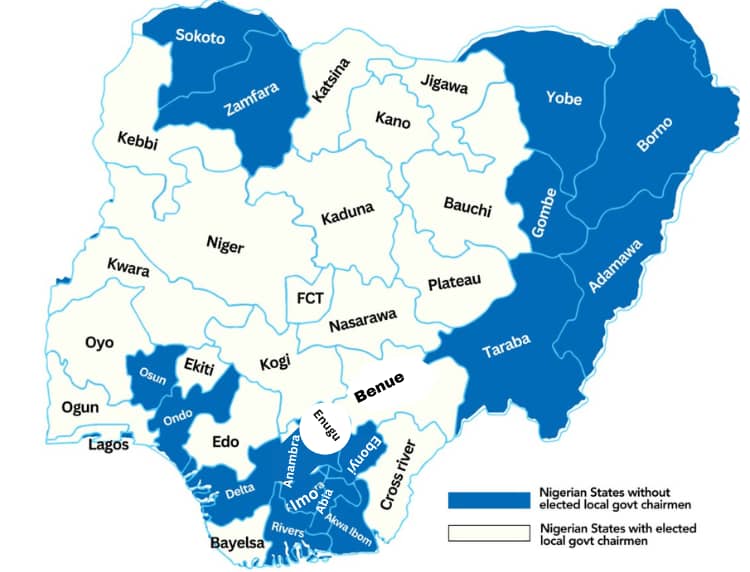


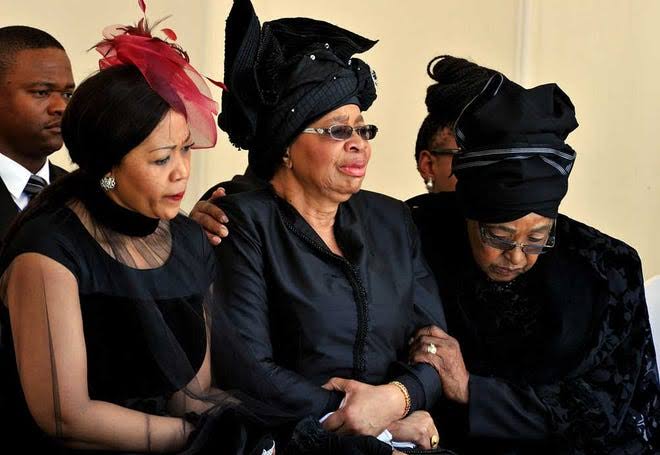
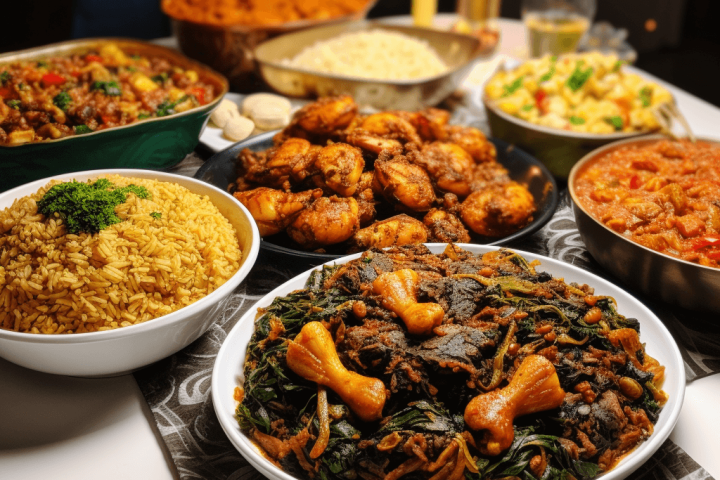






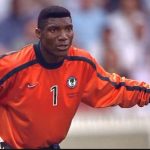


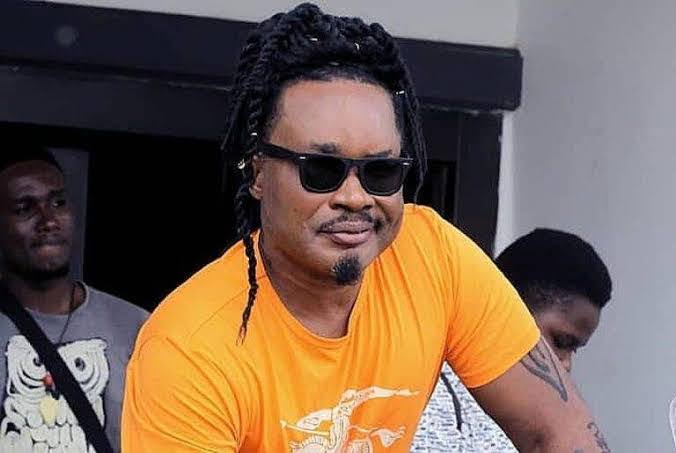
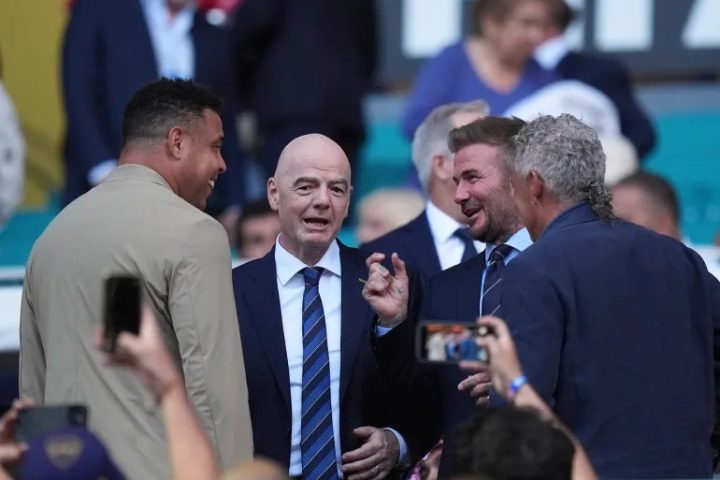
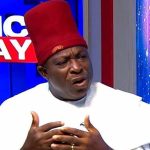
Follow Us